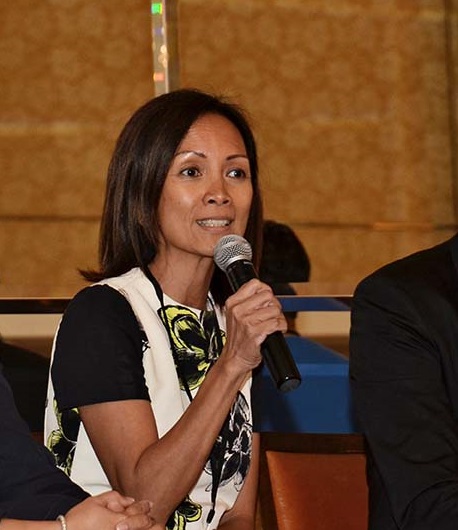HR Tech Think Tank: AI and Robotic Process Automation
- Melia Widjaja
- Topics: Home Page - News, HR Technology, News, Recruitment

Talent management is undergoing a revolution – and emerging technologies will bring massive changes to practices currently employed by HR professionals. Artificial Intelligence (AI) is one such technology that has the ability to fundamentally transform the HR function and all of its processes.
This was a key takeaway at the AI and Robotic Process Automation cluster during the HR Tech Think Tank, led by Grace Kerrison, Managing Director of Pymetrics in Asia-Pacific (pictured).
On recruitment, she emphasised that it was important for HR technology to enable organisations to focus hiring based on potential, not pedigree, as well as to identify candidates that are the right fit for the role and company in an unbiased way.
“Pymetrics replaces the résumé as a first pass filter by using gamified neuroscience data and AI to help companies make their hiring and internal mobility more fair and predictive than methods currently being used,” Kerrison said. “It is also more diversity-friendly in terms of including and providing opportunity to people from different genders, ethnic, and socio-economic backgrounds.”
Most HR professionals recognise AI and automation as one of the top business trends increasingly impacting how they hire. This trend will likely continue as the technology takes over some of the more repetitive tasks involved with recruitment, including sourcing and screening of candidates.
Kerrison noted that this would give recruiters the opportunity to establish less transactional, more consultative relationships with clients and candidates.
“These tools are certainly not going to put recruiters out of business,” she said. “They’re going to elevate their role to doing more high-value activities.”
Not all algorithms are created equal
In a segment on the ethics of AI, Pymetrics Data Scientist Lee Su Mei explained how algorithms can perpetuate problematic historical hiring patterns if left unchecked
It is therefore important for companies to know if the outcomes of their algorithms are biased, and hold their solution providers to the same standards of accountability.
Pymetrics minimises the risk of bias through Audit-AI, an internally-developed bias detection tool that recommends adjustments if an algorithm is weighted in favour of a particular group, based on factors such as gender or ethnicity. Earlier this year, Pymetrics open-sourced the Audit-AI in an effort to help technology creators who share that vision of fairness in machine learning.
By moving away from filtering candidates based on resumés, Pymetrics’ clients have been able to tap into talent from non-traditional and diverse backgrounds and increase the diversity in their organisations, both Lee and Kerrison said.
About Pymetrics
Founded by two female Harvard and Massachusetts Institute of Technology-trained PhDs, Pymetrics uses neuroscience games and bias-free artificial intelligence (AI) to predicatively match people with jobs. Pymetrics assesses candidates based on their potential – their inherent cognitive and emotional make-up – rather than their pedigree, or resume.
Using de-biased AI, the team in Asia-Pacific builds a cognitive and emotional trait profile of a company’s top performers to source, select, and develop potential talent. Utilising the best of neuroscience, engineering, data science, and psychology, Pymetrics is the only predictive hiring technology to ensure that algorithms are bias-free, making it a pioneer for democratising and diversifying predictive hiring.
For more information:






